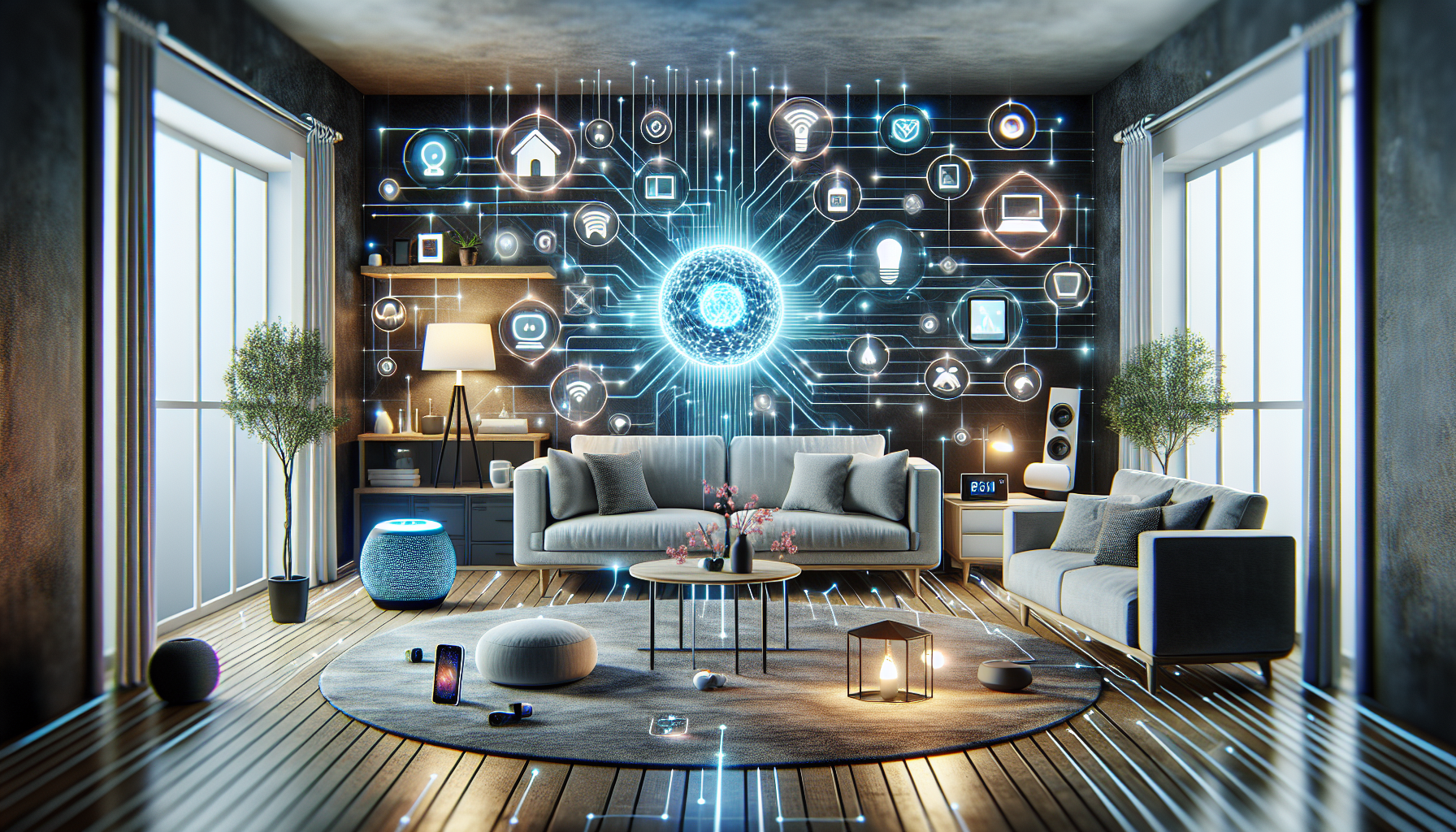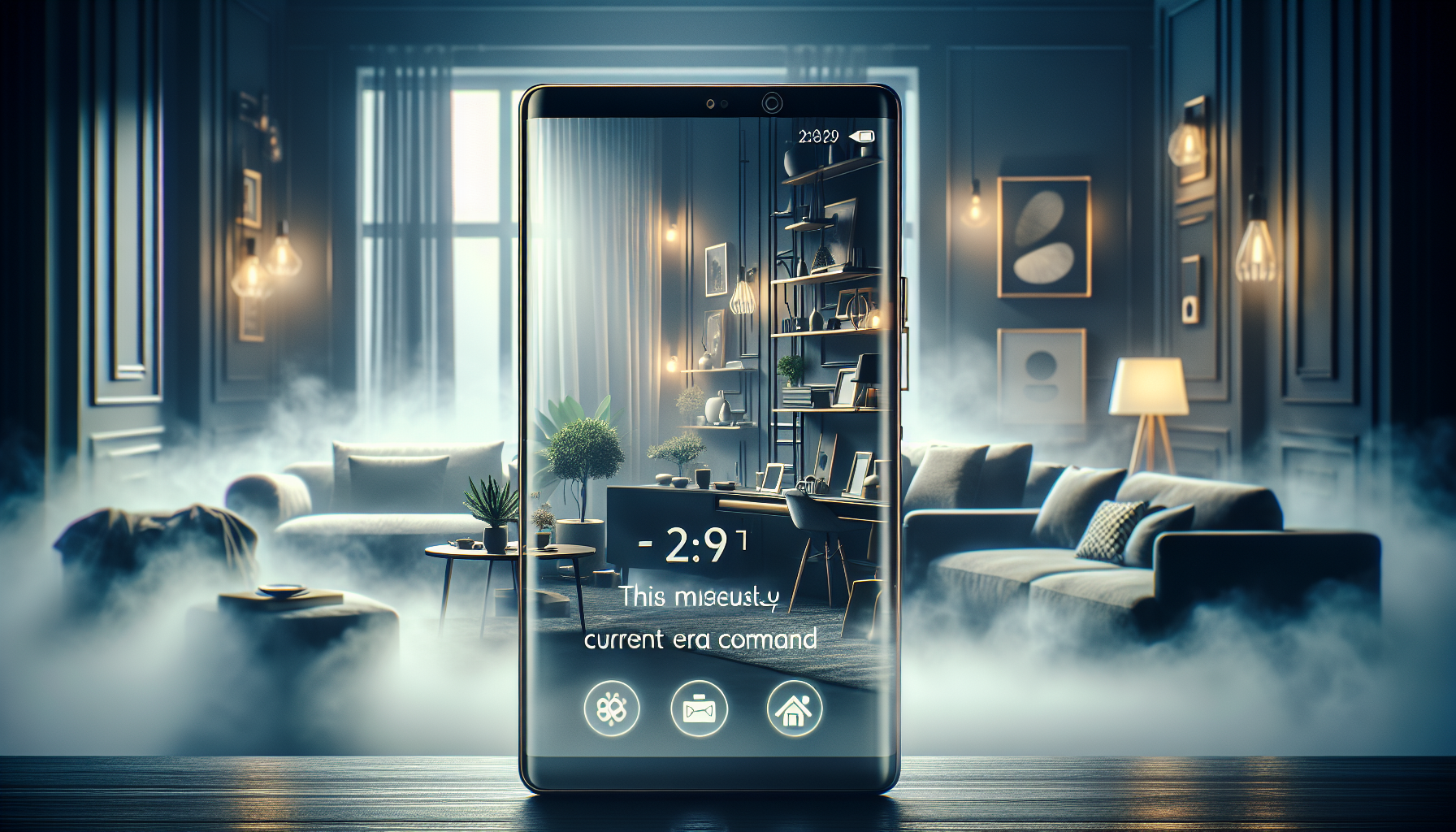Imagine living in a home where you can control everything with just a tap of your finger. From adjusting the temperature to turning on the lights, a smart home offers convenience and comfort like never before. But what exactly does it take for a house to be considered “smart”? In this article, we’ll explore the essential elements that make up a truly intelligent home, giving you a clear understanding of what you need to turn your living space into a tech-savvy oasis. So, sit back, relax, and get ready to discover the world of smart homes.

CHECK OUT SMART HOME DEVICES ON AMAZON
Smart Home Technology
Smart home technology refers to the integration of various devices and systems within a household to enhance comfort, convenience, and security through automation and remote control. It allows you to control and monitor various aspects of your home with ease, even when you’re not there. From lighting and temperature control to security and entertainment, a smart home offers numerous benefits and can greatly improve your day-to-day living experience.
Definition of a Smart Home
A smart home is a residence equipped with interconnected devices and systems that can be controlled remotely or automated to perform specific tasks. These devices communicate with each other and can be accessed through a central hub or smartphone app. The goal of a smart home is to make your life easier by seamlessly integrating technology into your daily routines.
Benefits of a Smart Home
There are numerous benefits to embracing smart home technology. Firstly, it enhances convenience. With smart home automation, you can remotely control various aspects of your home, such as turning on/off lights, adjusting the thermostat, or even locking and unlocking doors. This level of control can save you time and energy, making your life more efficient.
Secondly, a smart home offers increased energy efficiency. Smart thermostats and lighting systems can be programmed to adjust according to your daily routines and preferences. This not only enhances comfort but also helps reduce energy consumption and lowers utility bills.
Furthermore, smart home technology enhances security. With features like smart locks, surveillance cameras, and motion sensors, you can monitor and secure your home from anywhere. You’ll receive real-time alerts on your smartphone if any suspicious activity is detected, giving you peace of mind even when you’re away.
Lastly, a smart home provides entertainment and multimedia capabilities. With smart TVs, streaming devices, and audio systems, you can enjoy seamless and immersive entertainment experiences. Voice control systems make it even easier to navigate and control your media, creating a truly interconnected and enjoyable entertainment setup.
Components of a Smart Home System
To have a fully functioning smart home, it is essential to have the right components integrated into your system. Here are some key components to consider:
Networking and Connectivity
To ensure a smooth and responsive smart home experience, you need a fast and reliable internet connection. This enables seamless communication between your devices and the central hub or smartphone app. Additionally, you’ll want to make sure that your Wi-Fi coverage extends to all areas of your home to ensure connectivity for all your devices. A central smart hub or controller acts as the central command center, allowing you to access and control all your devices from one place.
Security and Surveillance
Security is a crucial aspect of any smart home system. Smart locks offer convenience and enhanced security by allowing you to lock and unlock your doors remotely. Surveillance cameras provide real-time monitoring and recording capabilities, ensuring you have visual access to your home at all times. Motion sensors can detect any unusual activity and trigger alerts, while alarm systems provide an added layer of security. Secure communication protocols and encrypted connections ensure your data remains protected.
Home Automation
Home automation is the heart of a smart home system. Smart lighting allows you to control and automate your lights for energy efficiency and ambiance. Smart thermostats enable automatic adjustment of temperature settings based on your preferences and daily routines. Appliances control lets you remotely operate and monitor devices such as refrigerators, ovens, and washing machines. Automated window coverings offer convenience and energy efficiency by adjusting based on lighting conditions. Smart home energy management systems provide insights and control over your energy usage, helping you make informed decisions.
Entertainment and Multimedia
Smart TVs offer advanced features such as streaming capabilities, access to online content, and voice control integration. Streaming devices like media players or smart sticks allow you to stream videos, movies, and music from various platforms. Audio systems, including wireless speakers and soundbars, provide enhanced sound quality and can be integrated with other smart devices. Voice control systems, such as virtual assistants, enable hands-free control of your entertainment setups. A home theater setup adds that extra touch of luxury and immersion for the ultimate entertainment experience.
Smart Home Assistants
Smart home assistants, including virtual assistants like Amazon Alexa or Google Assistant, act as your digital helper. They respond to your voice commands, provide information, and control various aspects of your smart home system. Voice-activated speakers offer convenience by allowing you to control devices, play music, and even make calls using voice commands. Integration with home automation systems further enhances the capabilities of these smart home assistants, making them an invaluable addition to your setup.
Energy Efficiency
Efficient energy usage is a crucial aspect of a smart home. Energy monitoring systems provide insights and real-time data on your energy consumption, allowing you to make informed decisions to reduce waste. Smart power outlets enable remote control and scheduling of connected devices, reducing standby power consumption. HVAC automation ensures optimal temperature control and energy usage by adjusting settings based on occupancy and preferences. Integrating renewable energy sources, such as solar panels, enables you to generate and utilize clean energy for your home.
Compatibility and Interoperability
Compatibility and interoperability are important considerations when building a smart home system. Protocol standards, like Wi-Fi, Zigbee, or Z-Wave, ensure that devices from different manufacturers can communicate and work together seamlessly. It is important to verify the compatibility of devices before purchasing and ensure they can integrate with other smart home systems or third-party services. This allows for a flexible and expandable smart home setup that can adapt to your needs.
Data Security and Privacy
With the increasing amount of personal data shared within a smart home system, data security and privacy are of utmost importance. End-to-end encryption ensures that your data remains confidential and protected from unauthorized access. Access control mechanisms, such as multi-factor authentication, add an extra layer of security. Data storage practices should comply with industry standards, and regular backups should be performed to prevent data loss. Privacy policies and user consent ensure transparency and control over the usage of your personal information.
Smart Home Maintenance
Maintenance is essential to keep your smart home system running smoothly. Regular firmware updates should be performed on all connected devices to ensure optimal performance and security. Troubleshooting and support services should be available to address any technical issues that may arise. Creating system backups and implementing a recovery plan helps safeguard against data loss and system failure, ensuring a reliable and robust smart home experience.
In conclusion, a smart home offers a wide range of benefits, including convenience, energy efficiency, security, and entertainment. By incorporating components such as networking and connectivity, security and surveillance systems, home automation devices, entertainment and multimedia setups, smart home assistants, energy-efficient solutions, compatibility and interoperability features, data security and privacy measures, and proper maintenance, you can create a comprehensive and interconnected smart home system that enhances your day-to-day living experience. Embracing smart home technology allows you to have greater control, convenience, and peace of mind within your own home.

